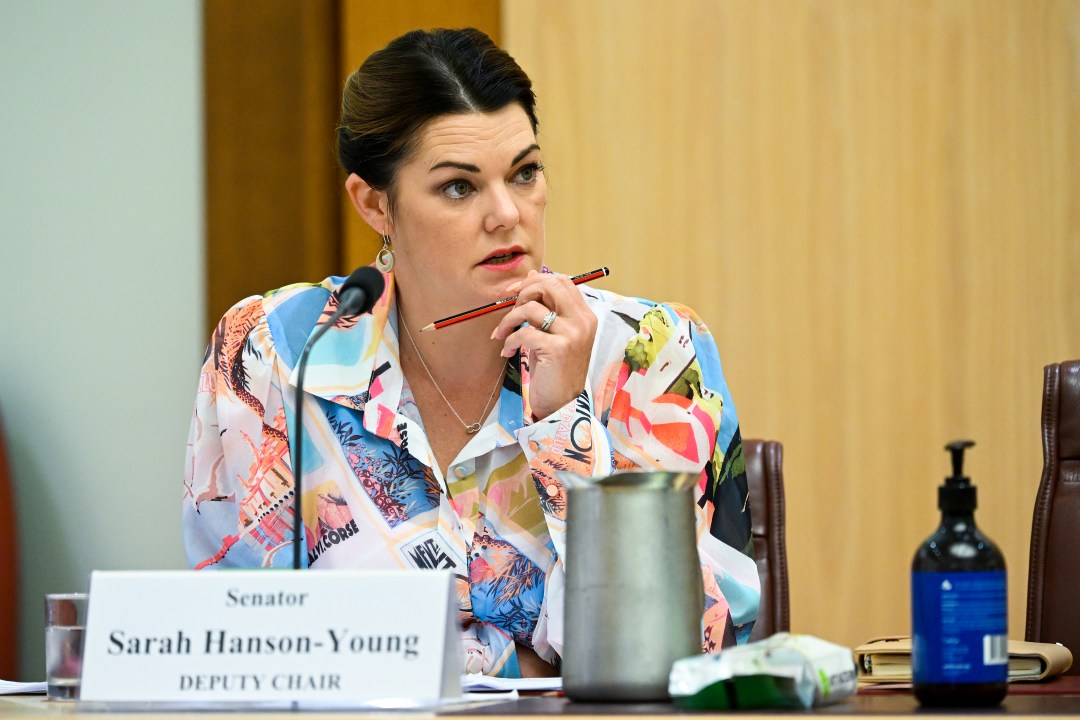Govt funding call to stop lights going out on music festivals
An interim senate inquiry report into Australia’s cultural policy has called for the federal government to help struggling music festival organisers after a series of event cancellations.

In February, the inquiry into Australia’s National Cultural Policy was referred to the Senate Environment and Communications References Committee, chaired by Senator Sarah Hanson-Young.
Australia’s National Cultural Policy Revive: a place for every story, a story for every place is a five-year plan aimed at reinvigorating the arts and culture space in Australia.
The interim report was released in preparation of next week’s Federal Budget.
It provided three recommendations to the government, including the provision of “immediate funding” to support festivals in Australia following a slew of cancellations.
The second recommendation was for the government to coordinate with the festivals sector and insurance industry to reduce premiums and investigate how to ensure insurance is accessible to small and medium festival operators.
Third, the committee recommended the government prioritise introducing legislative reforms for streaming services to have local content requirements.
You might like
Hanson-Young said the senate had heard “compelling evidence that the Government should step in to mitigate the rapidly rising cost of overheads”.

“Funding is urgently needed to save our beloved small and medium Australian festivals from further cancellations… this would be a minor budget measure that would make a significant difference,” she said.
InDaily contacted Federal Treasurer Jim Chalmers to ask whether the committee’s recommendations would be considered in the budget to be handed down next week but did not receive a response before publication.
The committee received 75 submissions in making the interim report, in which they determined several pressures on the festival industry which were contributing to cancellations.
The report found operating costs had risen by up to 40 per cent and premiums had risen in some cases 10 times what they were before 2022.
Stay informed, daily
The federal government previously committed $20 million over 2020 to 2024 under the Live Music Australia program, with applicants able to apply for up to $100,00, but the committee said this grant “did not always reach the artists most in need”.
“The arts are crucial for our culture and for our economy,” Hanson-Young said.
“In my home state of South Australia, festivals alone, just one small part of the arts ecosystem, employ more people directly than defence.
“Live performance events bring significant economic benefits that flow through to jobs in hospitality, tourism, trades and other sectors.”
The committee reported the festival cancellations “in 2024 alone is a dire warning that support is needed to ensure the sector’s viability”.
“The committee concludes that urgent, targeted support to the sector is needed to support festivals through the cost of living and climate crises. Australia cannot afford to lose more festivals and our diverse live music industry,” the report said.

The final recommendation in the report was around the prioritisation of local content requirements on streaming services.
Screen Producers Australia told the committee that the local screen industry was still suffering from the pandemic, global strikes, and other uncertainties in the streaming sector.
Federal Labor committed pre-election to a range of media regulation reforms, including the introduction of legislation regarding the inclusion of Australian content on streaming platforms by 2023, to commence July 1 2024.
Consultations have been underway regarding two potential models for reform, an expenditure model to impose an obligation of spending for local content on streaming services, and a revenue model requiring services to spend 10 per cent of their Australian revenue on local content.
Stephen Arnott from the Department of Infrastructure, Transport, Regional Development, Communications and the Arts told the committee that the government was “committed to having a scheme in place that commences from 1 July 2024”.
Screen Producers Australia CEO Matthew Deaner told the committee the legislation could help, but that it needed to “commence immediately in terms of requirements for obligations, not pass some legislation and have the regulation kick in at a lagged time”.








